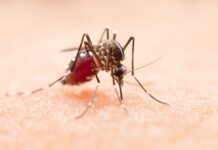

Scientists from the National Reference Center for Vibrios and Cholera at the Institut Pasteur, in collaboration with the CenterHospitalier de Mayotte, have uncovered the spread of a highly drug-resistant cholera strain. Their findings were published on December 11, 2024, in the New England Journal of Medicine.
Cholera, an infectious diarrheal disease caused by specific strains of Vibrio cholerae, can be deadly in its most severe forms. Without prompt treatment, patients can succumb within hours.
While rehydration therapy to replace lost water and electrolytes is the primary treatment, antibiotics are also crucial for shortening the duration of infection and halting its spread. However, a cholera strain resistant to 10 antibiotics—including azithromycin and ciprofloxacin, two of the three antibiotics recommended for treating cholera—was first identified during the 2018–2019 outbreak in Yemen.
As reported by medicalxpress, through genomic analysis, researchers have traced the spread of this strain. After Yemen, it was detected in Lebanon in 2022, followed by Kenya in 2023, and then Tanzania and the Comoros Islands, including Mayotte, in 2024. Between March and July 2024, Mayotte, a French département off the southeastern coast of Africa, experienced an outbreak of 221 cases caused by this highly drug-resistant strain.
“This study underscores the urgent need to strengthen global surveillance of the cholera bacterium, particularly its real-time response to antibiotics. If this circulating strain develops additional resistance to tetracycline, it could render all current oral antibiotic treatments ineffective,” warns Professor François-Xavier Weill, Head of the Vibrios CNR at the Institut Pasteur and lead author of the study.























